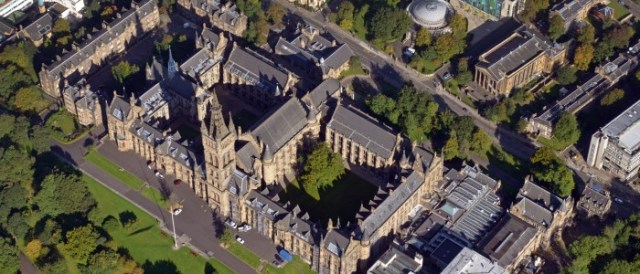
Glasgow University has signed an agreement with the University of the West Indies (UWI) to raise and spend £20m in what it called a “restorative justice” programme. The money will be used to set up and run the Glasgow-Caribbean Centre for Development Research which will be jointly located at UWI’s Mona campus and in Glasgow.
The media attention led to comments for and against the slave reparations lobby over summer 2019 as details of the 20-year project were made public. Here are some of the key points:
- The report entitled Slavery, Abolition and the University of Glasgow outlined how a number of major tobacco lords and members of the sugar aristocracy lived in 18th Century Glasgow - many of them university alumni. The report had been the first in British history to pin down how money made from slavery had been directly invested in an institution on a large scale.
- In all, 23 people were found to have donated money obtained from the slave trade to the development of Glasgow’s Gilmorehill campus between 1866 and 1880. The contributions are estimated to range from £16.7m to £198m in today’s money.
- The chief operating officer of the University of Glasgow, Dr David Duncan, commissioned the report. He said: “From the very first, we determined to be open, honest and transparent with the findings and to produce a programme of reparative justice.
- “We took this step with the spirit of reparative justice. The money collected from donations and grants will not be used to compensate the grandchildren of past slaves, but to sponsor the vast research efforts and academic co-operation in the slavery topic.”
- The report’s co-author, Dr Stephen Mullen, told the BBC: “I don’t think I was expecting the global reaction, but I knew it was an important, landmark piece of work.”
- Middle East specialist news website Asharq al-Awsat said that Glasgow University had actually been built on lands which had once belonged to a family of West Indian tobacco merchants. University presidents had included a plantation owner who sold slaves in Jamaica in the 18th Century.
- UWI vice-chancellor Prof Hilary Beckles called the decision a “bold, moral, historic step” in recognising the slavery aspect of its past.
- The issue of slavery reparations hit the headlines in summer 2019, but Caribbean people have long been aware of the growing debate in the Caribbean, America and the UK.
- The summer ceremonies and signing of a Memorandum of Understanding (MOU), plus a TV series by BBC Scotland exploring the transatlantic slave trade, have brought the reparations debate into focus in the Scottish media. One Scottish academic, Joanna Williams, told BBC Scotland: “For me, the number one problem with this is that it suggests people who are alive today bear some historical responsibility for what their ancestors did in the past."
- The Glasgow University decision has not gone unnoticed by the US media, which have their own views on the slavery reparation debate (CI piece here). Conservative magazine National Review described the university move as a “curious decision to reward itself”.
- National Review said: “It is certainly a historic step; Glasgow is the first British educational institution to make this kind of pledge. But bold? Moral? Restorative? This decision fails on all three counts.
- “It is little more than a virtue-signalling endeavour, puffed up with the language of social justice, designed to attract positive media attention. Financially compensating a victim for criminal damage is a moral and just thing to do, but Glasgow is choosing to reward itself. It is dressing up self-funding as an atonement for its past sins. This is insulting, not moral.”
- It added: “Glasgow cannot enact ‘restorative justice’ because the souls it has harmed through its links to slavery have long departed.”
- Members of Glasgow’s Jamaican community have been expressing their views as details of the university’s origins, using money from the slave trade, have been unveiled. One woman told UK’s Channel 4 how she now felt “emotional”, overwhelmed and “angry” when walking through the doors of Glasgow University.
- Yvonne Black, a Jamaican student there, said told Channel 4 that she walked tall through Glasgow University. She said: “I represent the dreams, the hopes that my ancestors could not have... This is the blood and sweat of my ancestors.”
Related articles
Slavery reparations back on the agenda - Caribbean Intelligence
Glasgow University's 'bold' move to pay back slave trade profits - BBC Scotland
![]()